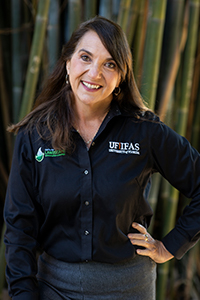Wendy's Wanderings
March 8, 2023
Master Gardener Volunteer Program turns 50
As long as there have been gardeners there have been gardeners sharing their knowledge with each other. We just can't help it. Take for example my recent trip to a certain wholesale club. I noticed a display of lilac bushes for sale at $15 a pot. Remember, lilacs don't grow in Florida. I quickly positioned myself in front of the display to educate potential buyers to not throw good money after bad. Thankfully my friend finished her purchase and got me out of there before management did.
Fifty years ago, the creators of the first Master Gardener program understood the desire of gardeners to share their knowledge. In 1973, Washington State University Extension Agents David Gibby and William Scheer needed help. They were overwhelmed by the public demand for information on plant problems and gardening information. They needed another way to meet the needs of the home gardeners in Seattle and Tacoma.
These Extension agents strategized to create a volunteer program that would train gardeners with university-based education to deliver gardening information to the public. The first pilot plant clinic was set up in the Tacoma Mall with great success and they were ready to take the program forward. The horticulture training curriculum and the program policies were created, and the volunteers got started. Although David Gibby and William Scheer stepped back from the program, Extension agent Sharon Collman picked up the torch. She was instrumental in creating the Master Gardener's strong program structure and expanding the program throughout Washington and other states. Gibby and Scheer remained supporters of the program throughout the years and the current Master Gardener national search for excellence awards are named for Dr. Gibby.
After 50 productive years, the Master Gardener Volunteer program is active in every state, Puerto Rico, Canada, South Korea, England, and beyond. The training and volunteering components look the same across the nation, but the priorities of each state's program vary somewhat, depending on the needs of the community.
All Master Gardener Volunteer programs have plant clinics to give free access to unbiased, researched-based horticultural advice. They serve in demonstration gardens and community gardens to teach sustainable gardening techniques. Many volunteers work with 4-H and school gardens to plant the seeds for a gardening future. Western states focus on growing produce for those who are food insecure. Here in Florida volunteers teach on landscaping practices that conserve water and protect water quality.
Everywhere you find Master Gardener Volunteers, you will find a concerned group of gardeners that want to share their knowledge to improve the lives of the people in their communities. With a mission and passion like that we are looking forward to what the next 50 years brings to this inspiring volunteer program.
-- Wendy Wilber

